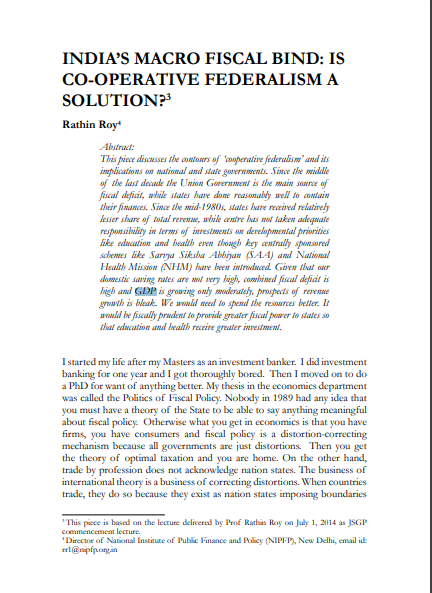India’s Macro Fiscal Bind
Is Co-operative Federalism a Solution?
DOI:
https://doi.org/10.54945/jjpp.v4i1.139Abstract
This piece discusses the contours of ‘cooperative federalism’ and its implications on national and state governments. Since the middle of the last decade the Union Government is the main source of fiscal deficit, while states have done reasonably well to contain their finances. Since the mid-1980s, states have received relatively lesser share of total revenue, while centre has not taken adequate responsibility in terms of investments on developmental priorities like education and health even though key centrally sponsored schemes like Sarvya Siksha Abhiyan (SAA) and National Health Mission (NHM) have been introduced. Given that our domestic saving rates are not very high, combined fiscal deficit is high and GDP is growing only moderately, prospects of revenue growth is bleak. We would need to spend the resources better. It would be fiscally prudent to provide greater fiscal power to states so that education and health receive greater investment.







